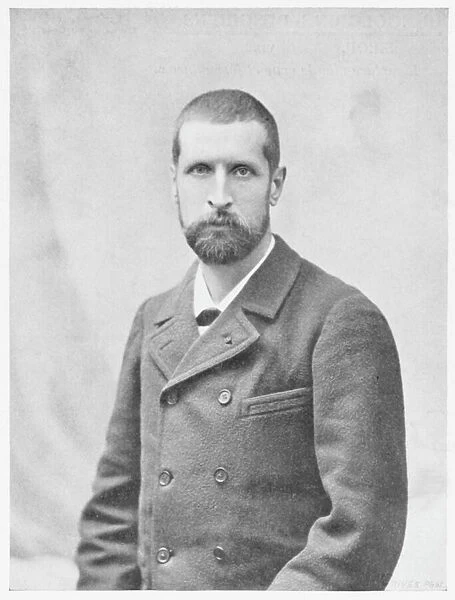Isocrates: The Father of Rhetoric and Political Philosophy
Introduction
Isocrates, one of the most influential thinkers of ancient Greece, is often regarded as the father of rhetoric and a pivotal figure in the development of political philosophy. Born in 436 BCE in Athens, Isocrates lived during a time of great political upheaval and intellectual flourishing. Unlike his contemporaries, such as Plato and Aristotle, Isocrates did not establish a formal school of philosophy. Instead, he founded a school of rhetoric that trained some of the most prominent orators and statesmen of his time.
Isocrates’ legacy lies in his ability to merge the art of persuasive speaking with ethical and political thought. His works, though primarily written speeches, offer profound insights into the challenges facing Greece during the 4th century BCE. He championed the idea of Panhellenism—a unified Greece—and believed that education and eloquence were the keys to achieving political harmony and strength. This first part of the article explores Isocrates’ early life, his educational philosophy, and his contributions to rhetoric and political discourse.
Early Life and Influences
Isocrates was born into a wealthy Athenian family, which allowed him access to the best education available in classical Athens. His father, Theodorus, owned a workshop that produced flutes, a lucrative trade at the time. However, the Peloponnesian War (431–404 BCE) devastated Athens and stripped Isocrates of his inherited wealth. This financial ruin forced him to seek a career in education and rhetoric, fields where his intellectual talents could thrive despite his reduced circumstances.
As a young man, Isocrates studied under some of the most renowned sophists of his era, including Gorgias and Prodicus. These teachers emphasized the art of persuasive speaking, a skill that would become central to Isocrates’ own philosophy. However, unlike many sophists who were criticized for teaching rhetoric as a tool for personal gain, Isocrates sought to elevate the discipline into a means of fostering moral and civic responsibility.
The Founding of His School
Around 392 BCE, Isocrates established his own school in Athens, which quickly gained a reputation for excellence. Unlike Plato’s Academy, which focused on abstract philosophical inquiry, Isocrates’ school emphasized practical education aimed at producing effective orators and leaders. His curriculum included rigorous training in public speaking, composition, and political theory, preparing students for active participation in civic life.
One of the distinguishing features of Isocrates’ educational approach was his belief in the power of logos—reasoned speech—as a force for societal change. He argued that well-crafted rhetoric could inspire individuals to pursue justice, unity, and the common good. Many of his students went on to hold significant political and military positions, spreading his ideas throughout Greece.
Isocrates’ Rhetorical Style
Isocrates was a master of the written word, and his speeches were intended to be read rather than delivered orally. This distinction set him apart from other orators of his time, such as Demosthenes, whose works were primarily spoken. Isocrates’ prose was characterized by its polished elegance, balance, and rhythmic cadence, making his arguments both persuasive and aesthetically pleasing.
Among his most famous works is Panegyricus, a speech composed around 380 BCE, in which he calls for Greek unity against the Persian Empire. In it, he argues that Athens should lead a coalition of city-states to resist foreign threats—a vision that would later influence leaders like Philip II of Macedon and his son Alexander the Great. His other notable works include To Nicocles, a treatise on kingship, and Antidosis, a defense of his life and educational philosophy.
Philosophical Contributions
While Isocrates is often overshadowed by Plato and Aristotle in discussions of Greek philosophy, his contributions were no less significant. He rejected the abstract metaphysical debates that preoccupied his contemporaries, instead focusing on practical ethics and political leadership. For Isocrates, philosophy was not about uncovering absolute truths but about cultivating wisdom and virtue in public life.
A key tenet of his philosophy was the idea that human nature could be improved through education. He believed that while not everyone could achieve greatness, proper training could help individuals reach their highest potential. This pragmatic approach made his teachings highly appealing to aspiring politicians and diplomats.
Conclusion of Part One
The first part of this exploration into Isocrates’ life and thought highlights his unique role as a bridge between rhetoric, education, and politics in ancient Greece. His emphasis on the ethical use of persuasion and his vision of a united Greece laid the groundwork for later political theories. In the next section, we will delve deeper into his political ideas, his influence on subsequent generations, and the enduring relevance of his work in modern discourse.
Isocrates and the Vision of Panhellenism
One of Isocrates' most enduring contributions was his advocacy for Panhellenism—the idea of a unified Greek world. At a time when city-states like Athens, Sparta, and Thebes were locked in constant warfare, Isocrates argued that Greek unity was the only solution to external threats and internal strife. His speeches, particularly the Panegyricus, laid out a compelling case for why the Greeks should set aside their differences and focus on common enemies, particularly the Persian Empire.
Unlike some of his contemporaries, Isocrates did not envision unity through conquest. Instead, he proposed a collaborative alliance under Athenian intellectual and cultural leadership. He believed that Athens, as the birthplace of democracy and philosophy, had both the moral authority and the practical capability to guide other Greek states toward peace. This vision, however, was often met with skepticism, as rival cities were unwilling to submit to Athenian dominance.
Influence on Philip II and Alexander the Great
Though Isocrates initially placed his hopes in Athens, he later turned his attention to Philip II of Macedon, seeing him as a potential leader who could unify the Greeks and lead them against Persia. In his famous Philippus, addressed to Philip in 346 BCE, Isocrates urged the Macedonian king to assume the role of a Panhellenic champion. He argued that by leading a united Greece against Persia, Philip could secure lasting glory while freeing Greek cities from internal conflicts.
While Philip did not fully embrace Isocrates’ idealistic vision, elements of his policies—particularly the formation of the League of Corinth—reflected the rhetorician’s influence. Alexander the Great, Philip’s son and successor, would later realize part of Isocrates’ dream by launching his campaign against Persia. Though Alexander’s empire-building diverged from Isocrates’ more restrained vision of Greek leadership, the intellectual groundwork had been laid by the Athenian orator.
Isocrates vs. Plato: A Clash of Philosophies
The philosophical rivalry between Isocrates and Plato offers an intriguing glimpse into the intellectual battles of fourth-century Athens. While both men were educators, their approaches to philosophy, rhetoric, and education were fundamentally different. Plato, through his Academy, sought absolute truths through dialectic reasoning and metaphysical inquiry. Isocrates, by contrast, dismissed such abstract pursuits as impractical, focusing instead on the art of persuasion and its role in public life.
One of Plato’s most famous critiques of Isocrates appears in the dialogue Phaedrus, where Socrates suggests that rhetoric without philosophical foundation is morally dangerous. Isocrates, in turn, argued in works like Antidosis that Plato’s philosophy was too detached from the realities of governance. Where Plato emphasized knowledge of eternal forms, Isocrates stressed the importance of practical judgment (phronēsis)—something he believed could be cultivated through rhetorical training.
Ethical Rhetoric: The Heart of Isocratean Thought
A key distinction of Isocrates’ philosophy was his insistence on the ethical dimension of rhetoric. Unlike the sophists, who were often accused of teaching persuasion as a tool for personal gain, Isocrates maintained that true eloquence must serve justice and civic virtue. In his view, the ideal orator was not merely a skilled speaker but a morally upright individual who used speech to benefit society.
This ethical stance is evident in works like Against the Sophists, where he criticizes rival teachers for focusing on argumentative tricks rather than cultivating wisdom. His emphasis on character and civic responsibility would later influence Roman thinkers such as Cicero, who further developed the concept of the virtuous orator.
The Practical Educator
Isocrates’ school became one of the most prestigious centers of learning in Greece, attracting students from across the Mediterranean. His educational model was built on three core principles: rigorous training in language and composition, immersion in historical and political knowledge, and the development of moral character. Unlike the sophists, who often charged exorbitant fees, Isocrates maintained a selective but relatively accessible institution, ensuring that his pupils were both capable and committed.
Among his most famous students were the historian Theopompus, the general Timotheus, and the orator Lycurgus of Athens. These figures carried Isocrates’ teachings into politics, literature, and military leadership, cementing his influence beyond Athens. His belief that education should produce not just thinkers but active leaders became a cornerstone of classical pedagogy.
Isocrates’ Later Years and Declining Influence
As Athens' political power waned in the mid-fourth century BCE, Isocrates’ dream of a unified Greece led by Athenian ideals grew increasingly distant. His final work, Panathenaicus, written when he was nearly 100 years old, reflects both his unwavering belief in Athens’ cultural superiority and his despair over the city’s political failures. In 338 BCE, shortly after the Macedonian victory at the Battle of Chaeronea—an event that marked the end of Greek independence—Isocrates reportedly starved himself to death, unable to reconcile his ideals with the reality of Macedonian dominance.
Conclusion of Part Two
This second section has explored Isocrates’ political ideals, his philosophical disagreements with Plato, and his lasting impact on education and rhetoric. His vision of Panhellenism, though never fully realized, shaped later historical developments, and his emphasis on ethical speech remains relevant in modern discussions of public discourse. In the final section, we will examine his legacy in later centuries, his rediscovery during the Renaissance, and his enduring significance in contemporary rhetorical studies.
Error: Response not valid

















/https://tf-cmsv2-smithsonianmag-media.s3.amazonaws.com/filer_public/1f/6b/1f6be1c6-ec72-46e3-86c8-38ae4038d098/stukeley.jpg)



Comments